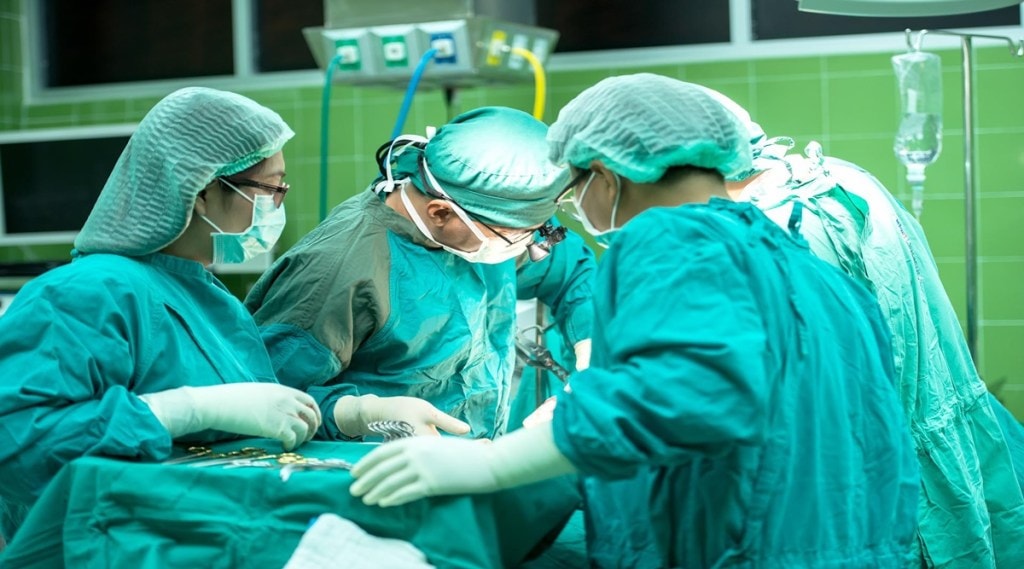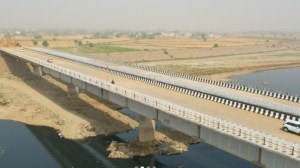Budget 2024: Finance Minister Nirmala Sitharaman is all set to present the interim budget 2024 on February 1. Ahead of the interim budget 2024, the industry leaders for the hospital sector have emphasised on the need to increase the budget allocation to the healthcare sector.
ALSO READ
Budget 2024 Live Updates: Union Budget 2024 Live Streaming, FM Nirmala Sitharaman Budget 2024 Speech Live
Railway Budget 2024 Live Updates: Indian Rail Budget 2024 Live Streaming
Budget 2024 Income Tax Live Updates: Income Tax Slab Rate Change Budget 2024 Live Updates
Budget 2024 Stocks to Focus: Union Budget 2024 Impact on Share Market Today
“The budget allocation to the healthcare sector should be increased by the government. It is crucial to elevate the healthcare expenditure allocation in GDP to improve accessibility, affordability, and more importantly the quality of healthcare services in India, especially in parts away from big cities focusing on preventive care, primary clinics, and secondary care facilities,” Raj Gore, CEO, Healthcare Global Enterprises Ltd. said.
For the upcoming budget, Gore urges the government to consider:
- Reducing Customs Duties and GST: To advance cancer diagnostics and treatment, advocate reducing customs duties and GST on essential equipment, reagents, and consumables. This fosters investment in cancer hospitals and lowers overall treatment costs for patients.
- Scaling Up Healthcare Workers (HCWs): Crucial to healthcare is allocating resources for the expansion of the workforce (HCWs). Providing training, staff, and screening tools for early cancer detection improves patient outcomes, making an investment in the nation’s overall well-being.
- Inclusion of Advanced Diagnostic and Treatment Modalities: Include advanced diagnostics and treatments like PET scans, targeted therapy, and immunotherapy in government schemes to ensure that patients have access to cutting-edge technologies and therapies.
“It’s high time we brought change in healthcare dialogue, prioritizing value and comprehensive treatment for all. This will not only enhance the quality of healthcare services but also streamline care delivery, ultimately benefiting a broader segment of the population by improving overall healthcare outcomes,” he added.
Meanwhile, Deepshikha Sharma, CEO, Sharp Sight Eye Hospitals said that there is a collective aspiration within the medical community for the government to intensify its focus on public health education through enhanced disease awareness campaigns.
“Such initiatives are vital for improving patient care and can lead to early detection and management of diseases, potentially saving lives and reducing the burden on our healthcare infrastructure. Alongside this, the healthcare sector anticipates a pivotal change with the equalization of the GST rate for Active Pharmaceutical Ingredients (API) with that of formulations. This adjustment is crucial for fostering a cost-effective domestic pharmaceutical industry and ensuring the availability of affordable medicines for all segments of our population,” Sharma said.
Furthermore, the extension of concessional tax benefits for new domestic manufacturing entities is eagerly awaited, she said.
“It’s a step that would provide a much-needed impetus to the ‘Make in India’ initiative and sustain the country’s growth trajectory in the healthcare manufacturing sector. Such proactive measures by the government would be instrumental in catalyzing innovation and self-sufficiency within the healthcare sector,” she added.
Dr Azad Moopen, Founder Chairman, Aster DM Healthcare highlighted that in the last Union Budget, the overall impetus for the healthcare delivery sector was missing. “We are hoping that this will get addressed in the upcoming Union Budget with an increase in budget allocation to minimum 5% of the GDP which is essential to fulfil the need gaps, he said. He recommended the following steps:
- Expanding Healthcare Access: There is a need to have more hospitals and healthcare facilities in rural and suburban areas to meet the rising demand given that Ayushman Bharat is aiming to make affordable healthcare accessible for 500 million people. Hope the government will put more focus on public-private partnerships (PPP) to address this, and also permit 100% Foreign Direct Investment (FDI) in both Health Insurance and Retail Pharmacy sectors.
- Medical Education and Research Reform: While the last budget announced the establishment of nursing colleges alongside medical colleges, there is an urgent need for comprehensive reform of medical education to ensure that the medical professionals of tomorrow are aligned with contemporary healthcare needs. This brings forth the need to develop medical colleges, nursing colleges and paramedical colleges in all the 500 district hospitals in the country.
- The healthcare sector is evolving rapidly, and this has been fast-tracked by the pandemic and there is a significant need for the professionals of tomorrow to learn and develop as per this evolution. The revamp will also require significant investments to integrate access to technology, more practical approaches, research and innovation driven methods and qualified professionals to help shape the best minds. A substantial allocation, including the setting up of Central Medical Research and Innovation Institute in each state would be a good start. Setting up a Central Digital Health and AI University will also help deploy technological innovation in healthcare to address challenges such as accessibility and equity along with healthcare costs. Additionally, there should be a specialized university catering to NRI students intending to return to India for academic pursuits.
- NRI Concessions: We were also hoping for concessions for NRIs residing abroad like reduction on TDS for those who have a source of income in India and are required to pay taxes in the country they reside in. Other considerations include affordable airline fares to SAARC and GCC countries to support the growing trade and business collaborations between the regions, along with the implementation of a health scheme for those returning to India for retirement, among other beneficial measures.
Dr. N K Pandey, Chairman & Managing Director, Asian Hospital, Faridabad said that they expecting to witness a robust policy shift that transcends traditional boundaries.
“Our Budget expectations include a substantial increase in the healthcare sector allocation, reflecting the government’s commitment to address critical health challenges particularly focus towards incommunicable disease. At the same time I think the government must also take steps to facilitate international collaborations to leverage global expertise and resources for healthcare advancements would align with the spirit of collective health progress. Furthermore, we expect to see a substantial focus to enhance accessibility of healthcare services in rural and small town India, with better infrastructure and high quality of medical facilities. We also expect to see continued focus on increased integration of AYUSH, as the acceptance of traditional medicine in holistic healthcare is growing,” Dr. Pandey said.
Meanwhile, Devlina Chakravarty, MD and CEO of Artemis Hospitals revealed that they expectations focus on key pillars: increasing public health expenditure to extend critical services nationwide, investing in cutting-edge medical education and research for a skilled workforce, advocating for affordability through tax breaks on health insurance and widened government coverage, and nurturing innovation in medical technology.
“We are optimistic about the government’s commitment to healthcare improvement, trusting in positive measures for accessible, affordable, and high-quality healthcare. A healthier population is the foundation of productivity and prosperity. The upcoming budget has the potential to reshape India’s healthcare landscape positively, and we eagerly anticipate transformative advances in ensuring the health and well-being of all citizens,” he said.
Dr. Bhupesh Singh, Senior Ophthalmologist & Director, Bharti Eye Hospitals said that the health sector is optimistic about strategic tax reforms that could propel the industry forward. The extension of eligibility for weighted deductions to companies under the new tax regime stands out as a potential catalyst for substantial investment in healthcare research and development.
“This extension would be a progressive step, aligning with the government’s vision of fostering innovation and making India a hub for medical breakthroughs. In addition, there’s a strong call for clarity and expansion of the Input Tax Credit (ITC) scheme to include expenses related to medical practitioners. Such a move would alleviate the financial strain on healthcare providers, enabling them to allocate resources more efficiently towards patient care and services. The implementation of this measure would be a testament to the government’s commitment to bolstering the healthcare sector’s capabilities. It is a critical time for such interventions, which could decisively shape the future of healthcare delivery in India and reinforce the nation’s resilience against health crises,” Dr. Singh said.
Some experts are also expecting an expansion of the medical value tourism.
Abrarali Dalal, Director & CEO, Sahyadri Hospitals Pvt Ltd. said that they foresee major advancements in strengthening the hospital and healthcare industry, with a particular emphasis on the core competencies of Home and Transit Care Services and the rapidly expanding field of Medical Value Tourism.
“As a quaternary care hospital, we would also welcome expansion of health insurance coverage to include modern treatments, promoting research and innovation with policy support, and increasing awareness of digital healthcare benefits. The capital should be directed towards providing modern, cutting-edge healthcare services to rural populations in order to close the gap that exists between urban and rural areas. A budget set aside for these initiatives will not only raise the bar and make healthcare more accessible to the impoverished, but it would also push our nation to the forefront of the medical value tourism sector. We anticipate a healthcare ecosystem with focused investment that supports an infrastructure that is cheap and accessible to all, regardless of location, and prioritises high-quality, sustainable treatment. The forthcoming budget presents an opportunity for the government to demonstrate its commitment to a robust, inclusive, and future-forward healthcare system,” Dalal said.
Dilip Jose, Managing Director & CEO, Manipal Hospitals pointed out that healthcare sector is to be perceived as an ecosystem.
“While delivery of care is at the core, it is closely intertwined with other facets like nutrition, sanitation, safe drinking water, reduction in pollution, primary education, etc to name a few. The Government has been viewing it from that perspective, especially with wellness and prevention of disease as the focus. Therefore, the expectation from the Budget is for continuity of that framework and adequate focus as well as funding support for all components of the ecosystem to ensure that we progress on the goals of prevention and wellness,” Jose said.
Gautam Khanna, CEO, P.D. Hinduja Hospital & Medical Research Centre, Mumbai revealed that India faces both unique challenges and un-paralleled opportunities in the healthcare sector. The upcoming budget must allocate the resources to drive India towards an inclusive digital health system, Khanna said.
“While the government’s initiatives over the past couple of years like ABPMJAY, ABDHM, focus on telemedicine and enhancing healthcare infrastructure have been commendable, a lot still needs to be done. India has one of the lowest public health expenditures relative to GDP in the world. While India’s population has grown nearly 15 per cent over the last decade, this growth has not been complimented by an equitable growth in healthcare spending. The upcoming budget should focus on increasing healthcare expenditure aiming for 2.5 to 3.5 percent of the total GDP in order to move closer towards universal health coverage,” he said.
Every year, roughly 5.8 million Indians succumb to heart and lung diseases, stroke, cancer and diabetes. Preventive health check-ups can help in early diagnosis and timely treatment of NCDs, hence lowering complications, mortality and burden on secondary and tertiary care facilities. Incentivising health insurance and preventive healthcare will play a pivotal role in this regards.
According to Khanna, expediting the implementation of measures announced in the previous budgets to enhance the public healthcare and medical education facilities in the country is critical. Further, to bridge the gigantic demand vs supply gap, the government should consider providing tax incentives for Healthcare Skill Development initiatives.
“A robust infrastructure backed by technology will be the backbone of delivering quality healthcare for all. As healthcare was introduced in the harmonised master list of Infrastructure sub sectors by RBI in 2012, long term financing options (as available to other sectors accorded infrastructure status), should be made available to healthcare also, in some form or the other. Other provisions such as depreciation for investments made for creating diagnostic infrastructure, incentivizing infrastructure creation and ease of doing business for the private sector would help fortify the infrastructural transformation for the sector. This financial support will also help in creating an attractive environment for domestic production of medical equipment, devices and consumables as well as catalyzing research and development. With this regard introducing either Zero rating GST to the health care sector with Input Tax credit, or bringing the healthcare sector under 5% GST with Input Tax credit, will help,” he said.
Digital healthcare, including Artificial Intelligence, Machine Learning, can contribute significantly towards making healthcare more accessible and affordable in the country, Khanna claimed. Tax incentives on technology investments and setting up ecosystems to aid the development of innovative digital healthcare delivery models suited for Indian healthcare would help in fuelling this transformation, he added.
“As India envisions becoming the medical tourism hub of the world, policy to ease the facilitation by Indian embassies abroad, insurance recognition for Indian providers, one stop welcome desk at airports, etc. will boost Medical tourism in India. This budget presents an opportunity to strengthen India’s healthcare sector foundation, catalyse growth and move towards being a more resilient & self-reliant nation,” he added.
Jasdeep Singh, Group CEO, CARE Hospitals Group said that the government could consider enhancing the budget for the healthcare industry. “The increased budget allocations can improve accessibility and affordability to people not just in Tier I cities, but also in Tier II and Tier III cities. Simplifying and making fairer taxes, specifically reforming GST, can contribute to this goal. The government could also consider a framework to focus on healthcare insurance, medical supplies and equipment, telemedicine, and medical tourism sectors of the healthcare industry,” Singh said.
Singh also revealed that there is a critical need for focused attention on hospital infrastructure.
“While hospitals delivered essential and high-quality treatment during the pandemic, the prevailing circumstances underscored the inadequacies in facilities, particularly a glaring shortage of beds and treatment options, especially in non-metro cities. Consequently, the government must prioritize enhancing infrastructure, especially in non-metro areas, ensuring that individuals can readily access healthcare when required. This initiative will not only benefit local communities but also contribute to the overall improvement of healthcare services on a global scale,” he said.
Allocating funds for training and development programs for healthcare providers, such as doctors and nurses, is essential. This will enhance their skills and contribute to better healthcare outcomes.
“2024 could be a promising year for the healthcare sector. We are hoping the government is going to consider the healthcare industry as a focus in this year’s union budget,” he added.
Yatharth Tyagi, Director, Yatharth Group of Hospitals said that they expect an enhanced healthcare spend of 2.5% of GDP to expand access and infrastructure.
“Backed by technology and innovation, schemes promoting medical tourism and digitization can position India as a healthcare hub for the world, creating jobs for our youth. Progress on GST for affordable equipment and nil rates on essential services will drive affordable treatment measures and inclusivity in healthcare. Increased budgetary incentives for private players to strengthen healthcare in aspirational districts will actualize the motto of “Sabka Saath Sabka Vikas.” Quality healthcare for all is integral for citizens to contribute meaningfully for national development. The pandemic put the spotlight on healthcare as vital for India’s self-reliance and economy. This budget must unite public and private stakeholders to increase expenditure across the value chain. By investing in preventive healthcare and universal coverage fueled by medical education and jobs, we can build a future-ready sector while uplifting lives. Healthcare for all will actualize the vision of an equitable India leading global welfare,” Tyagi said.







